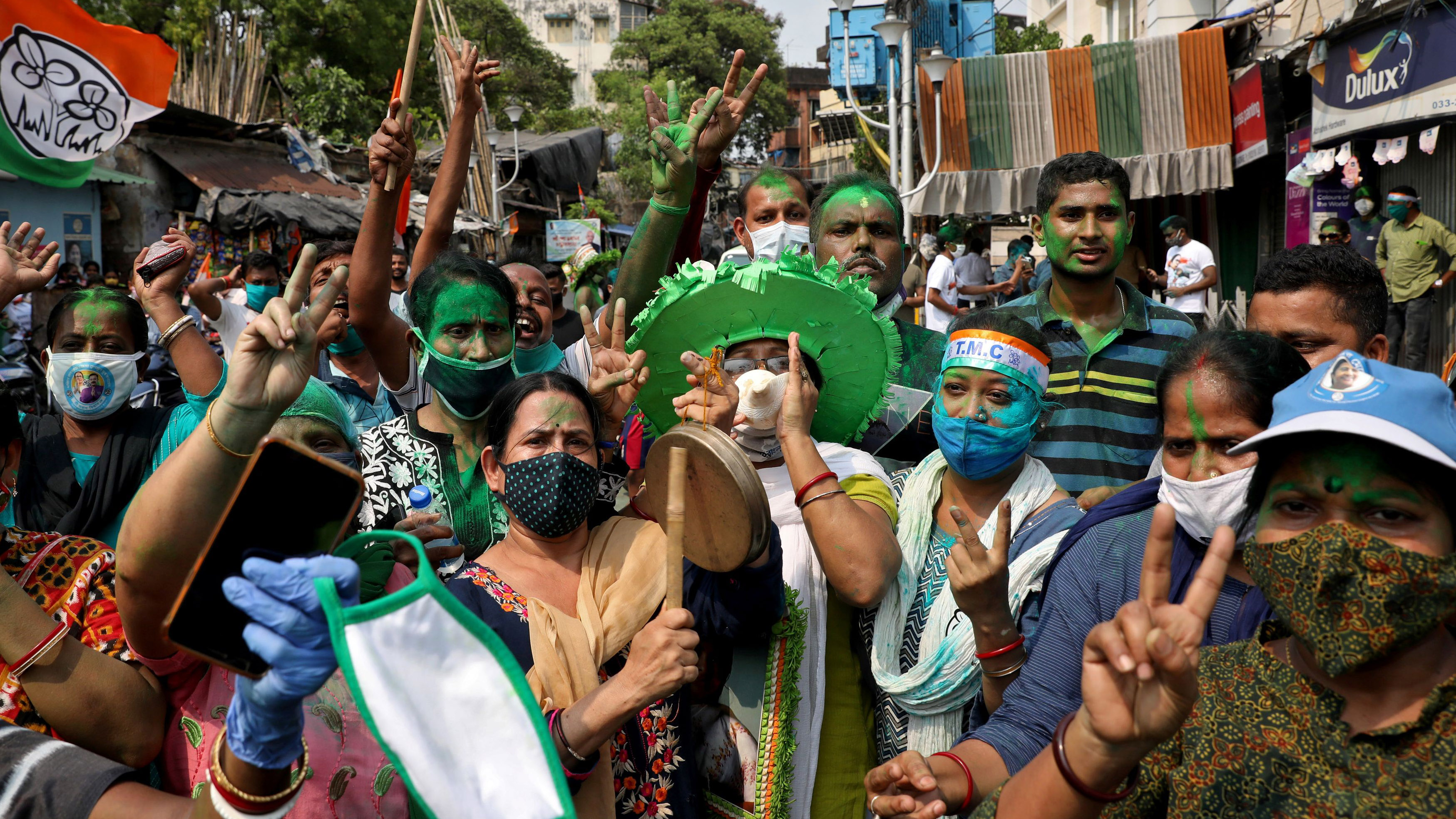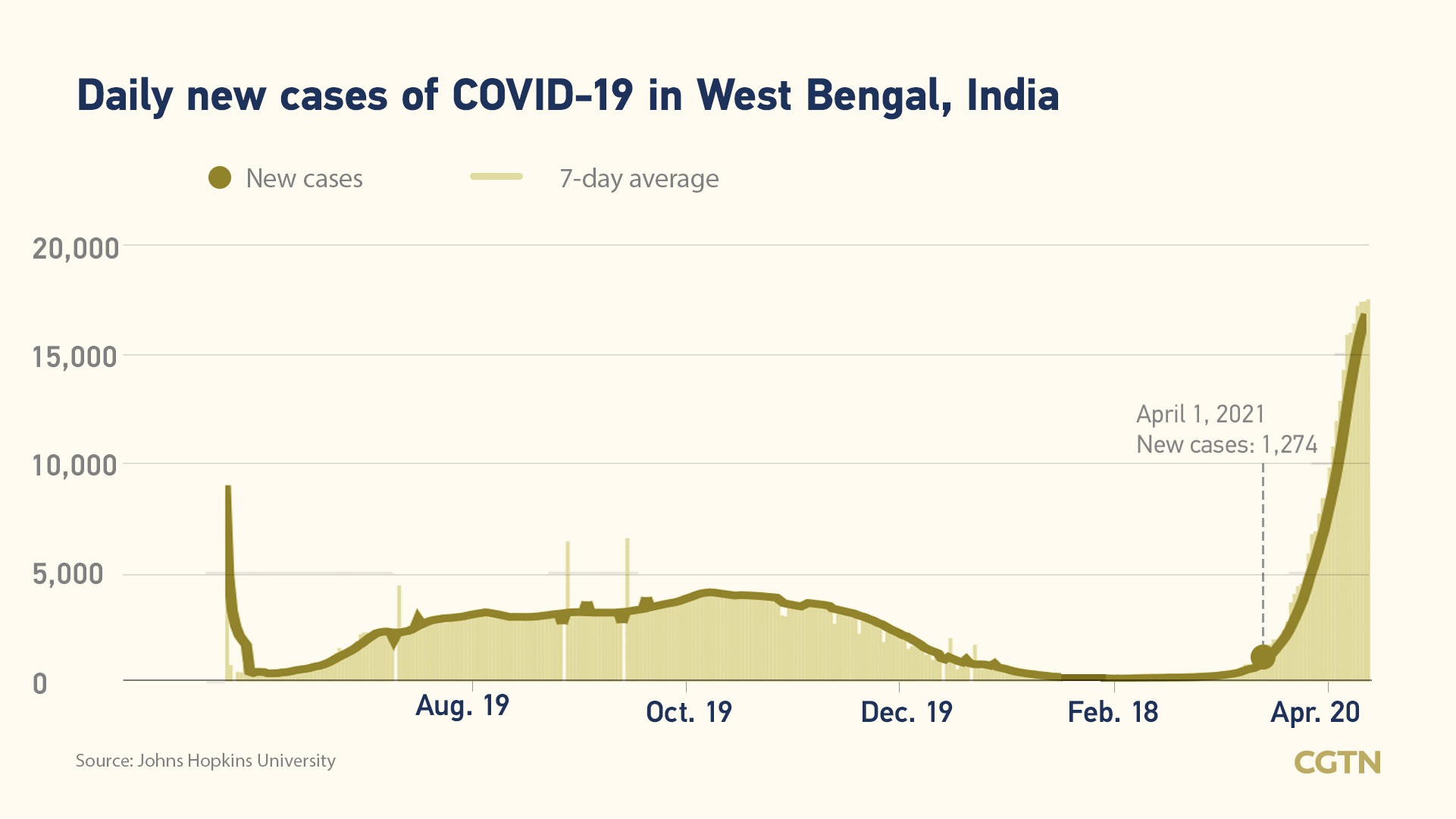02:43

The incumbent chief minister's party in India's West Bengal state has defeated Prime Minister Narendra Modi's party in a state election held as the coronavirus pandemic surged to crisis levels.
Despite the defeat, Modi's Bharatiya Janata Party (BJP) made substantial gains, making it the main opposition party as its tally in the West Bengal's legislature went to nearly 80 seats from just three seats won in 2016.
Mamata Banerjee, 66, is set to be the chief of West Bengal for the third time after her Trinamool Congress party (TMC) won a two-thirds majority, taking more than 200 seats in the 294-seat state assembly, election commission officials said. Final counting for some seats was still underway.
Banerjee is now India's only woman chief minister.
"It is a stupendous performance by Mamata Banerjee because Modi was determined to win Bengal, but it's clear that his entire political machinery and strategy was unable to defeat her," said Diptendu Bhaskar, a political analyst in Kolkata, West Bengal's capital.
Modi congratulated her on the big victory in a tweet on Sunday night. "Center will continue to extend all possible support to the West Bengal Government to fulfill people's aspirations and also to overcome the COVID-19 pandemic," he said.
Three other states and a union territory also released election results on Sunday.
In Assam state, the BJP managed to retain power. In Tamil Nadu, the DMK - the main regional opposition party - secured victory.
In Kerala state, the ruling leftist party, CPI (M), clinched the winning majority while the BJP scored a zero. In the union territory of Puducherry, the All India N.R. Congress-led alliance was leading in 14 of the 30 assembly seats.
Read more: India faces grim COVID-19 situation on deadliest day to date

The election epicenter turned into a virus hotbed
Modi is facing criticism for focusing on the elections instead of making the pandemic his top priority. Some experts also blame the federal election commission for allowing rallies and voting in which large crowds flouted rules on social distancing and mask-wearing.
Banerjee, a sharp critic of Modi, largely conducted a one-woman campaign to retain power by leading scores of public rallies.
The current prime minister and his team and other regional politicians campaigned aggressively in the five states despite the pandemic.
Most of the votes were cast in March, but polling in some constituencies continued through April, just as India started to detect thousands of new coronavirus infections every day.
West Bengal, one of India's most populous states and a stronghold of opposition to Modi, witnessed a total of over 100 election rallies held by BJP, according to the party announcement.
Modi traveled to the state for over a dozen rallies during the eight-phase election in the state.
The coronavirus situation of Bengal was under control when the second batch of national vaccination was rolled out, but the curve started to climb steadily amid election fever.
Since April, thousands of new infections have been added to the state's coronavirus report every day.
The national vice-president of the Indian Medical Association (IMA) Navjot Dahiya called Modi a "super spreader" during an interview with The Tribune, a local newspaper, last week.
"The West Bengal results tell us that Modi's personal, divisive and aggressive campaign in West Bengal backfired," Gilles Verniers, a professor of political science at Ashoka University near New Delhi, told the New York Times.
Over the past weekend, India has reported the world's highest number of single-day coronavirus infections, over 400,000, since the COVID-19 outbreak began in January 2020. Saturday was the deadliest with 3,689 fatalities.
(With input from Reuters)

